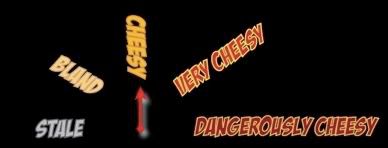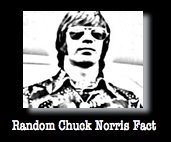
You'd think that anyone embarking on making an epic adaptation of a highly praised trilogy like Philip Pullman's His Dark Materials could simply go to the Steven Spielberg playbook of moviemaking to ensure success. Did Chris Weitz, director of The Golden Compass do that? Let's find out.
Rule 1: Find and tell a kid-friendly story that appeals to both young and old alike. Now I've never read the first part of this series that this film was based on, but it's purported to be on par with C.S. Lewis' The Chronicles of Narnia. And the idea of a world where your soul takes the manifestation of an animal "daemon" who accompanies you wherever you go, where armored ice bears rule the far reaches of the Arctic north, and magical Dust holds the key to traveling between a myriad of parallel universes, I'd almost believe that this is true. Unfortunately, it almost seems like the rules of this world are a bit too complex to fully absorb in a two hour movie, at least that's how it felt watching this film. Trying to figure out the laws of this world kind of weighed down this film, even for a relatively intelligent adult like me. I wonder what a 10 year old would think. This is the first of a planned trilogy, though, so hopefully they got all the introductions out of the way to make room for some meaty stories in the future.
Spielberg Grade: Fail
Rule 2: Use a sassy child actor as your main character. Dakota Blue Richards takes the lead role as Lyra, a young orphan girl left in the care of the scholarly Jordan College. Unfortunately, I think she almost got upstaged by her transforming daemon. Still, I think she has enough charisma and presence to establish herself as a good lead for the film.
Spielberg Grade: Pass
Spielberg Grade: Pass
Rule 3: Wow them with CGI animation. The CGI-animated daemons and armored bears are believable characters that actually keep up with the likes of Nicole Kidman and Daniel Craig. Whether or not that's a result of the animators or good acting by the real people in the movie, I don't know, but it's impressive.
Spielberg Grade: Pass
Rule 4: Who needs characterization when you've got a musical score to manipulate the audience like a marionette? This is the problem I have with most blockbuster movies these days. No one seems to take much care in developing a worthy orchestral score anymore. I guess a lot of films have resorted to the trendy hipster soundtrack, but I think an original score still goes a long way. I'd venture to guess that Star Wars wouldn't be half the classic it is without John Williams' score. The Golden Compass is one of those films that begs for a theme song that pulls at your childlike emotions, yet I can't even begin to remember what music they had.
Spielberg Grade: Fail
I'm sure there's other rules, but this post is getting long, and I'm getting bored writing it. Basically, I thought this movie was OK and is entertaining, but didn't live up to its potential. The best things about it were the armored bears and a supporting character of Lee Scoresby, an aeronaut played by the handlebar-mustached iconic cowboy Sam Elliott. Kind of sad when you think of all the CGI and Oscar winning/nominated talent that was in this production. I'd like to see what they do with the next two movies, but based on how well this first one is doing, I'm not even sure they'll green-light the rest of the trilogy.
Spielberg Grade: Pass
Rule 4: Who needs characterization when you've got a musical score to manipulate the audience like a marionette? This is the problem I have with most blockbuster movies these days. No one seems to take much care in developing a worthy orchestral score anymore. I guess a lot of films have resorted to the trendy hipster soundtrack, but I think an original score still goes a long way. I'd venture to guess that Star Wars wouldn't be half the classic it is without John Williams' score. The Golden Compass is one of those films that begs for a theme song that pulls at your childlike emotions, yet I can't even begin to remember what music they had.
Spielberg Grade: Fail
I'm sure there's other rules, but this post is getting long, and I'm getting bored writing it. Basically, I thought this movie was OK and is entertaining, but didn't live up to its potential. The best things about it were the armored bears and a supporting character of Lee Scoresby, an aeronaut played by the handlebar-mustached iconic cowboy Sam Elliott. Kind of sad when you think of all the CGI and Oscar winning/nominated talent that was in this production. I'd like to see what they do with the next two movies, but based on how well this first one is doing, I'm not even sure they'll green-light the rest of the trilogy.




1 comment:
"Star Wars wouldn't be half the classic it is without John Williams' score" is quite a statement. It's kind of like asking if the chicken or the egg came first. If I remember correctly, the score was inspired by the movie. Williams composed the score by watching clips of the movie. This makes me think that Star Wars would still be a success because it is like the chicken ... it came first.
Post a Comment